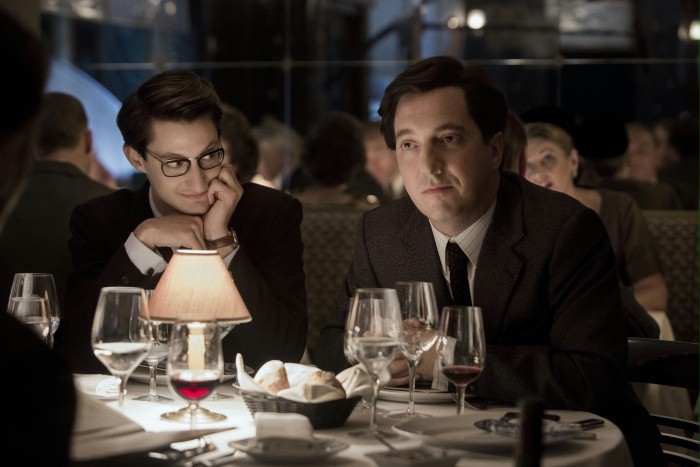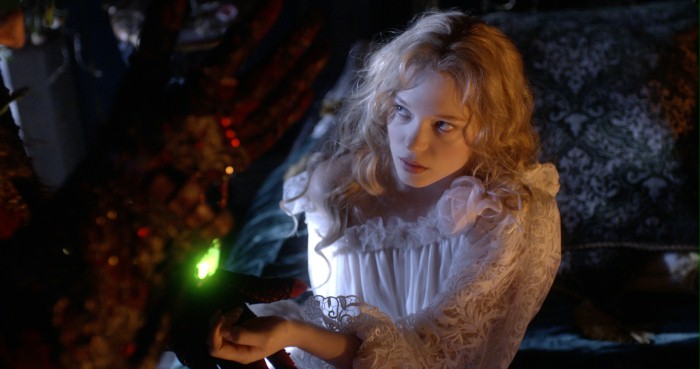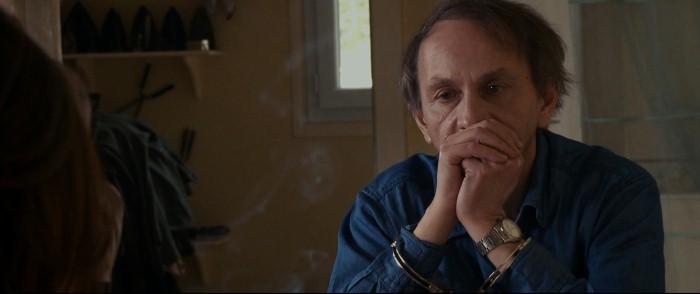You couldn’t imagine The Kidnapping of Michel Houellebecq (****) coming out of anywhere except France. Three years ago the enfant terrible of French literature vanished for some days from a book tour, giving rise to rumours as extreme as that he had been kidnapped by Al-Qaida. Guillaume Nicloux’s wry and eccentric comedy, playing in Berlinale’s Forum programme, recycles that legend, only in his film Houellebecq is vanished to a gypsy compound outside Paris where he’s held in circumstances that couldn’t be friendlier.
Nothing then of the atmosphere of Houellebecq’s most recent Goncourt Prize-winning novel, The Map and the Territory, in which the writer not only wrote himself into the story, but even killed himself off. It’s hard not to be charmed by the writer’s occasionally infuriating eccentricity as depicted here – a far cry from some of the more controversial views expressed in his writings – as he’s casually abducted in a trunk from his happy-go-lucky Paris life by three tough guys, who gradually prove themselves to be among life’s most inept kidnappers.
It’s the spectres in the designer’s closet that dominate – from the manic depressions, through the alcohol and drug abuse
Out at the rural hiding place where Houellebecq’s held he gradually charms his captors, as well as the aged couple whose premises they are borrowing: he smokes like a chimney, bargains to make sure there’s plenty of wine flowing, and even negotiates nocturnal visits from a local lady of the night.
It's made in a low-budget semi-documentary style that can’t have cost many euros, which should be recouped handsomely in arthouse-crossover distribution. Quite who pays the equally modest ransom demand for Houellebecq in the end isn’t exactly clear – but, as the writer jokes, it certainly wasn’t François Hollande. And it’s far from impossible that the writer will be returning again to his brief hiding-point – only next time as a welcome guest.
 This year is going to see not one but two biopics about the French couturier Yves Saint Laurent, but it’s hard to see the central role being played any better than by the brilliant Pierre Niney in Jalil Lespert’s Yves Saint Laurent (***) presented in Berlinale’s Panorama section. Less showy, but no less accomplished is Guillaume Gallienne as Laurent’s lover and business partner, Pierre Bergé (pictured above right, Niney and Gallienne),
This year is going to see not one but two biopics about the French couturier Yves Saint Laurent, but it’s hard to see the central role being played any better than by the brilliant Pierre Niney in Jalil Lespert’s Yves Saint Laurent (***) presented in Berlinale’s Panorama section. Less showy, but no less accomplished is Guillaume Gallienne as Laurent’s lover and business partner, Pierre Bergé (pictured above right, Niney and Gallienne),
The story starts, with a voiceover narration from Bergé, with Saint Laurent’s childhood in Algeria, before moving swiftly on to his rise to the top ranks of French fashion working for Dior, followed by his going independent (with full assistance from Bergé on the business side). But it’s the spectres in the designer’s closet that dominate – from the manic depressions, through the alcohol and drug abuse, and the searingly co-dependent relationship with Bergé, from whom Yves split as a lover in the 1970s (though the two would remain very close until the designer’s death in 2008).
That separation rather distort’s Lespert’s film in its final act. But, as befits a film about a designer, Yves Saint Laurent is gloriously shot (by Swiss cinematographer Thomas Hardmeier), never more so than in the scenes in Morocco, where the couple had a home in Marrakech, and where some of the designer’s more extravagant episodes were lived.
 There’s visual splendour of a different kind in Christophe Gans’s new adaptation of the classic fairy tale La belle et le bête (Beauty and the Beast ***). Whether the miracles of computer graphics, wonderful in the film’s depictions of writhing forests and collapsing masonry giants, are any match for the poetry of Jean Cocteau’s 1946 classic is a different question entirely. But there’s no faulting the Brotherhood of the Wolf director for his technical accomplishment: this Beauty is a multiplex romp for the whole family, with a portrayal of the family members in the story, the sisters particularly, straight out of pantomime.
There’s visual splendour of a different kind in Christophe Gans’s new adaptation of the classic fairy tale La belle et le bête (Beauty and the Beast ***). Whether the miracles of computer graphics, wonderful in the film’s depictions of writhing forests and collapsing masonry giants, are any match for the poetry of Jean Cocteau’s 1946 classic is a different question entirely. But there’s no faulting the Brotherhood of the Wolf director for his technical accomplishment: this Beauty is a multiplex romp for the whole family, with a portrayal of the family members in the story, the sisters particularly, straight out of pantomime.
The multi-talented Léa Seydoux (pictured above left) proves she can play popular as a feisty, and occasionally poetic belle. Vincent Cassel as le bête has a distinct problem: he’s just too damn sexy, this suave, hirsute Lion King who would certainly get visiting damsels trembling at the knees – just not out of the motive of fear that the story (sort of) requires. No better film for a Valentine’s Day Berlinale bow!















Add comment